Materials Science
-
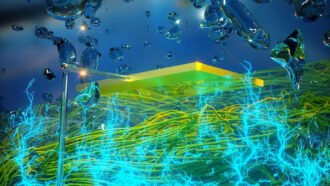 Materials Science
Materials ScienceWill bacterial ‘wires’ one day power your phone?
An accidental discovery helps scientists generate electricity out of thin —but humid — air with bacteria-made protein nanowires.
-
 Chemistry
ChemistryLet’s learn about batteries
Many things in our lives rely on batteries. Here’s how scientists are working to make new ones — and make existing batteries safer.
-
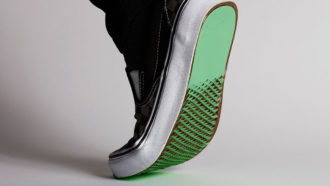 Physics
PhysicsShape-shifting cuts give shoes a better grip
With pop-out structures inspired by kirigami and animals, a shoe sole goes from flat to spiky to boost friction on slippery surfaces such as ice.
-
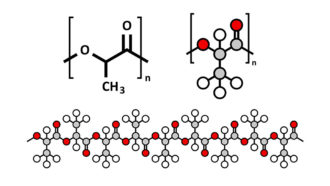 Chemistry
ChemistryScientists Say: Polymer
Polymers can be natural or man-made, but they are all big molecules made up of smaller units linked together.
-
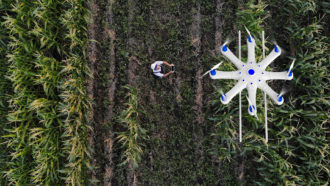 Plants
PlantsSilk-based microneedles may help treat diseased plants
Engineers have invented silk microneedles to inject medicines into plants. One day farmers might use drones to dart their sick plants with meds from the air.
-
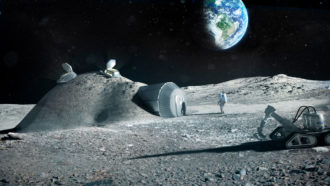 Space
SpaceAstronauts may be able to make cement with their own pee
Lunar dust and a compound found in urine might one day be used to build future dwellings on the moon, a new study finds.
-
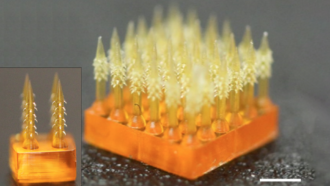 Materials Science
Materials ScienceMicro-barbs could make shots less painful
A new type of microneedle design might take the sting out of shots and stick to the skin better than other approaches.
-
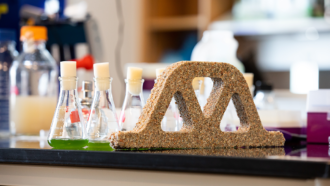 Materials Science
Materials ScienceThis ‘living’ concrete slurps up a greenhouse gas
Microbes help harden a mix of sand and gelatin into a living concrete that could interact with people and the environment in great new ways.
-
 Tech
TechHere’s one way to harvest water right out of the air
Need water but you have no access to rain, lakes or groundwater? Materials known as metal-organic frameworks could be used to slurp that water from the air, new data show.
By Sid Perkins -
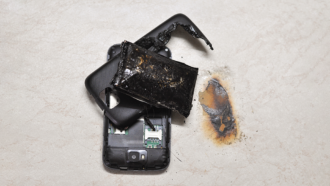 Chemistry
ChemistryBatteries should not burst into flames
Because lithium-ion batteries power modern life, they need to store a lot of energy. Now scientists are focusing on making them safer.
-
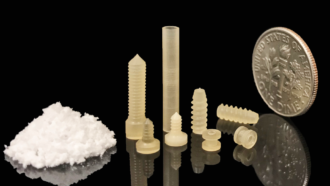 Materials Science
Materials ScienceSilk can be molded into strong medical implants
Freeze-dried and powdered silk has a long shelf life. It also is cheap to ship and can be molded into sturdy medical implants.
By Sid Perkins -
 Chemistry
ChemistryConverting trash to valuable graphene in a flash
Flash heating of carbon-rich wastes creates graphene, which has many commercial uses.